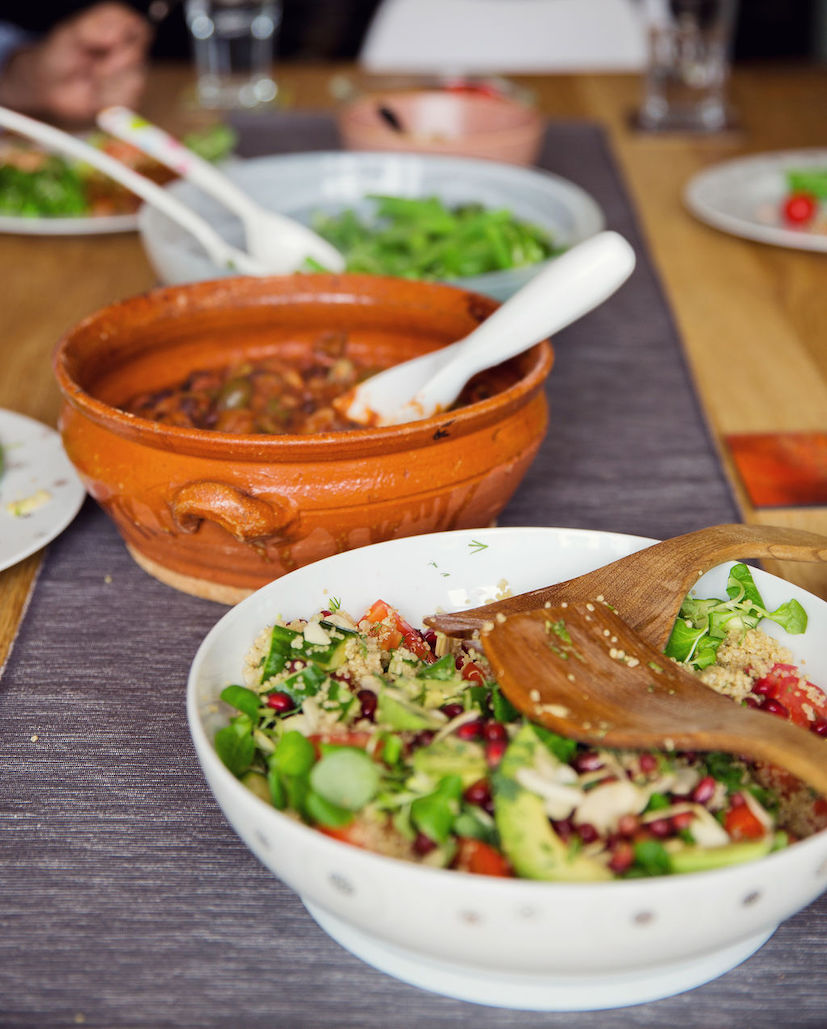
My top tips for a health Veganuary
January is a great time for changing up habits and trying new things. The excesses of Christmas are over, and the New Year brings new beginnings. It’s the perfect opportunity to try out something different. And over the last few years, one of the most popular January dietary changes has been Veganuary, where people try out an exclusively plant-based diet for the month.
But, if this is a new step for you, how can you ensure that you are doing this healthily? Here are my top tips for having a fun and healthy month trying out a new way of eating:
1. Don’t forget to eat a variety of foods
Do you find yourself always buying the same sort of veg each week? Well, then this is an opportunity to get out of that rut! Try adding in new vegetables and vegan ingredients to your shopping trolley. Or think about possibly signing up for a veg delivery this month. This will push you out of your comfort zone and make you mix up what you cook.
If you’re trying veganism as a new way of eating, it’s important that you don’t just continue eating your normal meals without the meat or fish. This is the perfect opportunity to try a whole new batch of recipes – with vegetables as the stars of the show. By having a wide variety of foods will help to ensure that you’re getting a good nutritional balance.
2. Cook from scratch
Don’t be fooled into thinking that because it’s vegan and packaged up with healthy styling that processed vegan foods are any healthier. While it’s tempting to reach for the pre-packaged vegan foods as a quick fix, take care, as they may not be any better for you than non-vegan pre-packaged foods.
For example, vegan biscuits may have just as many processed ingredients and sugar as non-vegan biscuits. By cooking from scratch, you can ensure that you are able to stay away from the not-so-healthy processed ingredients and that you can keep your nutrition levels high. Snacks such as carrot sticks and hummus or celery with guacamole are good quick and easy alternatives.
3. Discover new sources of plant-based protein
Getting enough protein is often an area that people worry about when embarking on a vegan diet. There are plenty of ways to include protein in your vegan diet, but it’s a good idea to vary the sources and try and include one or two different sources at each meal to ensure you are getting a full complement of protein.
Tofu, tempeh, and edamame, as well as certain grains like quinoa and amaranth, are vegan sources of complete protein. Another good idea is to combine grains and pulses together which then can also provide a good source of complete protein. For example, eating wholegrain rice and beans together, or having a pitta bread with some hummus.
Leafy greens, lentils, chickpeas, and other legumes are good sources of plant-based iron. However, plant-based (or non-haem iron) is not so readily absorbed by us as iron from animal sources. To ensure that you get as much as you can from your vegan source, try to make sure that you eat vitamin C-rich foods, such as broccoli, peppers, kiwis, and citrus fruits, alongside your plant-based foods to aid absorption.
Vitamin B12 is not produced by plants and, according to research, fortified foods or supplements are the only proven reliable sources of it for vegans. For example, vitamin B12 is often added to yeast extract, alternative milk products and nutritional yeast flakes and, therefore, it might be a good idea to include these sources in your diet on a daily basis. Or you may want to talk to your healthcare provider regarding supplementation.
Our main source of vitamin D is from the sun but, in the UK from October-May, the government guidelines recommend supplementation. But, it is always a good idea to check with your healthcare provider before embarking on supplementation. Dietary vitamin D largely comes from oily fish or dairy products. However, it can also be found in some vegan fortified foods, such as alternative milk products and orange juice.
Oily fish, like salmon and mackerel, are the best sources of two omega 3 fatty acids – DHA and EPA – which are important for eye and brain health. However, they can be made in the body from precursor ingredients found in plant foods like flaxseed, walnuts, and soy. So, be sure to include these foods in your new plan on a daily basis.
If this is something that you’d like to try, then do check out some new and interesting recipes. Check out the recipes section of the blog. Or feel free to book in a call with me to discuss – I’d be happy to help!
![]()
Please get in touch and find out more - I offer a free 30-minute exploratory call.